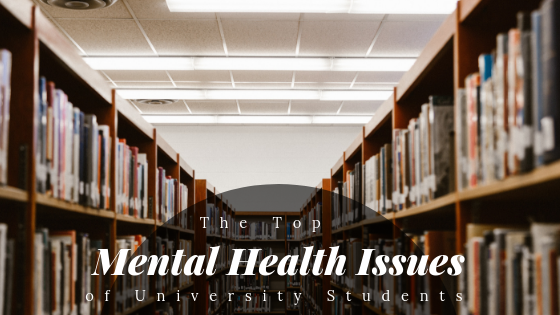Mental health professionals have growing concerns about the increasing mental health issues suffered by college students today. The National Alliance on Mental Illness reports that 25 percent of students have an emotional or mental health problem. Unfortunately, approximately 40 percent do not seek medical help. The anxiety and stress plaguing students hinder their academic achievement.
Anxiety
Statistics indicate that half or more of college students suffer from chronic anxiety. Everyone experiences anxiety and stress from time to time. However, for some, the problem continues for weeks, months or more. The problem becomes severe enough to interfere with a student’s daily life. Anxiety disorder presents with many different symptoms that include:
- Abdominal discomfort
- Apprehension
- Chest pain
- Difficulty concentrating
- Difficulty breathing
- Dizziness and profuse sweating
- Fearfulness
- Irritability
- Panic attacks
Depression
In 2013, the Association for University and College Counseling Center Directors conducted a survey and found that more than one-third of students live with depression of varying degrees. Depression remains the leading reason for dropping out of college. If the disorder becomes chronic and progresses, the illness may lead to suicidal tendencies. Symptoms of chronic depression include:
- Appetite changes
- Abnormal sleep patterns
- Difficulty concentrating
- Feeling overwhelmed
- Helplessness and hopelessness
- Losing interest in activities that once brought joy
Suicide
The American College Health Association reports that suicide is one of the leading causes of death in college students. Symptoms that someone might exhibit when contemplating suicide include:
- Feeling trapped
- Giving away possessions
- Hopelessness
- Reckless behavior
- Verbalizing a desire to die
Mental health professionals recommend that when a friend or loved one exhibits symptoms, ask them if they are considering suicide. Listen to them and discuss the reality and finality of the act. Express compassion. Do not hesitate to tell a health care or mental health counselor of your suspicions.
Eating Disorders
Male and female students alike may suffer from an eating disorder. Statistics suggest that approximately 30,000,000 people in America live with one of the mental health problems that include anorexia or bulimia. The stress caused by habitually starving the body of much-needed nutrients leads to a variety of potentially life-threatening conditions that include cardiac, liver and kidney damage. Symptoms of eating disorders include:
- Avoidance of eating in public
- Distorted body image
- Excessively exercising
- Excuses for erratic eating habits
- Retreating to the bathroom after meals


